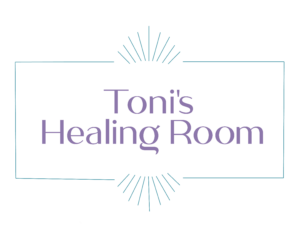The common symptoms of anxiety
I thought I would rehash some basic information about anxiety and how it can affect people living a good life. Symptoms can vary from person to person, but frequently experienced symptoms of anxiety are:
Excessive Worry: Persistent and excessive worry or fear about various aspects of life, such as work, health, relationships, or future events.
Physical Symptoms: Anxiety can manifest in physical symptoms, including increased heart rate, rapid breathing, sweating, trembling, muscle tension, nausea, restlessness, fatigue, or difficulty sleeping.
Cognitive Symptoms: Racing or intrusive thoughts, difficulty concentrating or focusing, overthinking, feeling on edge, or having a sense of impending doom.
Emotional Symptoms: Feelings of unease, irritability, agitation, being easily startled, or experiencing a sense of dread. Some people may also experience panic attacks, which are sudden episodes of intense fear accompanied by physical symptoms such as chest pain, shortness of breath, or a sense of losing control.
Behavioral Symptoms: Avoidance of certain situations or places that trigger anxiety, social withdrawal, excessive reassurance-seeking, or engaging in repetitive behaviors as a way to cope with anxiety.
It’s important to note that symptoms can range from mild to severe and can significantly impact a person’s daily life. If you or someone you know is experiencing these symptoms and they are causing distress or interfering with daily life, it is advisable to seek professional help.
Anxiety can be caused by
A combination of various factors, including biological, environmental, and psychological factors. Here are some common causes and risk factors associated with anxiety:
- Genetics and Family History
- Brain Chemistry and Imbalances
- Traumatic Life Events
- Chronic Medical Conditions
- Personality Traits
- Environmental Factors
- Substance Abuse
- Childhood Experiences
It’s important to remember that each individual’s experience can be unique, and the causes can be variable.
Managing and reducing anxiety
Here are some techniques that may help:
Practice Relaxation Techniques: Engage in relaxation exercises such as deep breathing, progressive muscle relaxation, meditation, or guided imagery. These techniques can help calm your mind and body during periods of anxiety and in maintaining balance.
Exercise Regularly: Physical activity has been shown to be crucial for reducing anxiety. Aim for regular exercise, such as walking, jogging, swimming, or yoga, as it helps release endorphins, improves mood, and reduces stress.
Maintain a Healthy Lifestyle: Ensure you’re getting enough sleep, eating a balanced diet, and avoiding excessive consumption of caffeine, alcohol, and nicotine. These substances can worsen anxiety symptoms.
Stress Management: Identify and address stressors in your life. Practice time management, prioritize tasks, delegate when possible, and set realistic goals. Implement stress reduction techniques like engaging in hobbies, practicing mindfulness, or participating in activities that bring you joy.
Social Support: Seek support from trusted friends, family members, or support groups. Sharing your feelings and concerns with others can provide comfort and help alleviate anxiety.
Self-Care: Prioritize self-care activities that promote relaxation and well-being. Engage in activities you enjoy, such as reading, listening to music, taking a bath, or spending time in nature.
Limit Exposure to Triggers: Identify situations, environments, or triggers that tend to exacerbate your anxiety symptoms and try to limit your exposure to them when possible.
Mindfulness and Acceptance: Practice mindfulness techniques to stay present and grounded in the moment. Acceptance of anxious thoughts and feelings without judgment can help reduce their intensity.
Seek Professional Help: If self-help strategies are not sufficient, consider seeking professional help to work on the underlying issues.
Remember, what works for one person may not work for another, so it’s important to explore different strategies and find what works best for you. Be patient with yourself and seek professional guidance if needed.
Peace and Love, Toni 💛 Book a free chat and learn how I can help www.tonishealingroom.com.au
